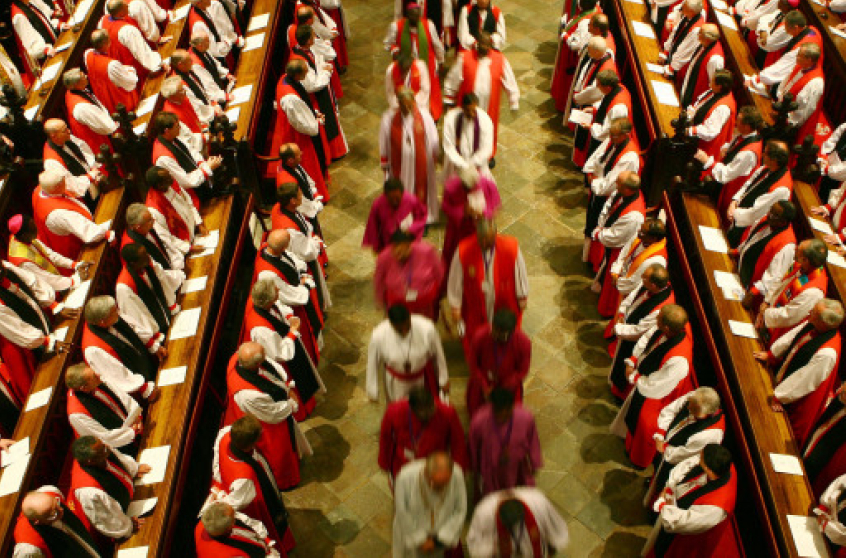
Last year the General Synod's decision on women bishops managed to leave both supporters and opponents of the move dissatisfied. Now the House of Bishops' move to allow gay bishops in civil partnerships, so long as they are celibate, has also managed to dismay both liberals and conservatives.
There are many factors involved here. For one thing, let us not overlook the spiritual battle: the devil loves to discredit the gospel – and if nothing else, we can certainly recognise something of the satanic in the maelstrom that has unfolded over this issue. We should also note the role of the media in this frenzy. As the blogger Gillan Scott observed on his 'Godandpolitics' website: "Quite often Christians are accused of being obsessed with sex, but maybe that's because the press loves to talk about Christianity and sexual matters especially when it involves gay relationships. As orthodox Christian teaching becomes increasingly counter-cultural it becomes even easier to point a finger and say, 'Look at these funny Christians with their strange views!'"
But of course there are also issues of substantial theological importance here. The vast majority of global Christianity across all denominations maintains a fairly overwhelming consensus that the right place for sex is solely within heterosexual marriage, with the alternative to that being celibacy.
It's a viewpoint which many Christians would argue derives directly from the New Testament, including Christ himself. After all, Jesus' words in Matthew 19v4-6 are foundational for a Christian definition of marriage. Here, he says: "At the beginning the Creator 'made them male and female,' and said, 'For this reason a man will leave his father and mother and be united to his wife, and the two will become one flesh'? So they are no longer two, but one flesh." Jesus, of course, had no problem being radically counter-cultural when necessary, but his view of marriage (and divorce) is pretty clear.
At the same time, he himself modelled what Christians have historically viewed as the only alternative to marriage – a life of singleness and celibacy, while enjoying rich friendships. He was, the Bible tells us, "tempted in every way" – and yet clearly he managed to live a godly, rounded and complete life – with self-denial an intrinsic part of that – without being sexually active.
Officially, the Church of England continues to maintain very clearly that heterosexual marriage and celibacy are the two alternatives for Christians. There are of course those who argue that faithful, loving and permanent homosexual relationships should be supported. But it would be a very substantial change indeed firstly to reinterpret all the negative Scriptural references to homosexual practice, secondly to explain away the glaring absence of positive teaching about gay marriage in the Bible, and thirdly to overturn the Christian consensus of the last two millennia.
In this particular situation, part of the problem is that, theologically, no-one really knows how to regard civil partnerships: are they simply quasi-marital unions with an inevitable sexual content – a step too far for evangelicals and traditionalists, or a step too short for liberals wanting full gay marriage? Are they something sinful to be rejected, something positive to be embraced, or something neutral – perhaps even to be redeemed in Christian terms? Might they legitimately take the form of celibate, covenanted friendships, as the Bishops seem to think? Since the different sides don't even agree on the definition of what it is they are disagreeing about, the scope for division remains huge.













